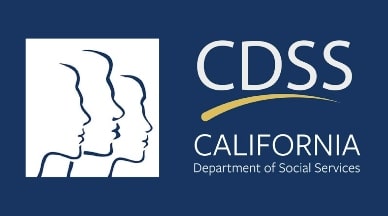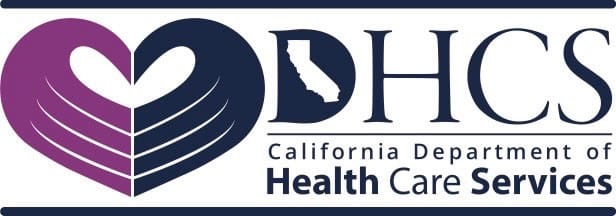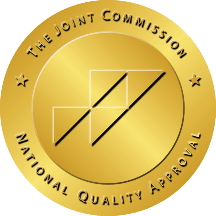SoCal Mental Health
Who We Are
We focus on bridging individuals with specialized treatment programs in Southern California, aimed at addressing acute psychiatric symptoms and stabilizing presenting challenges. We are dedicated to guiding each person toward compassionate and personalized care options, emphasizing the importance of evidence-based methods, including psychotherapy and medication management strategies, without directly claiming to administer these treatments ourselves.
Recognizing the complexities of co-occurring disorders involving mental health and substance use, our priority is to connect individuals with resources designed to prevent the need for inpatient hospitalization. By emphasizing longer lengths of stay in appropriate care settings, we aim to promote the development of independent living skills.
Understanding that chronic, pervasive mental illness can lead to significant life challenges, we advocate for short-term crisis intervention and residential program referrals. These programs are tailored to expand horizons through daily living skills enhancement, incorporating therapeutic recreation. This approach includes engaging in outdoor activities and social outings, fostering revitalization and encouraging positive behavioral changes.
Our mission is to facilitate connections to programs within the Southern California mental health community, offering individuals new perspectives on enjoying life and overcoming daily obstacles. Through our platform, we aim to assist in learning essential life skills such as budgeting, cooking, vocational development, and community reintegration. The ultimate goal is to empower individuals to utilize these skills toward achieving independence and autonomy, without directly claiming to provide these services ourselves.
Holistic Treatments
Music Therapy
Music therapy and songwriting techniques serve as holistic approaches to mental health treatment, offering a creative outlet for expression and healing.
Yoga
Yoga is offered as a holistic treatment method for mental health disorders, providing a path to enhance overall well-being through physical and mental practices.
Fitness & Training
Personal training may be provided as a holistic approach to both mental and physical wellness, emphasizing the interconnectedness of physical health and mental well-being.
Co-Occurring Treatment
Co-Occurring Disorders in Mental Health Treatment
Substance Abuse Stabilization in Mental Health Treatment
Treatment Plans Should Revolve Around You
Treatment plans for mental health disorders and dual diagnoses, including specific medical conditions, should be uniquely tailored around your individual needs. The process begins with a thorough intake assessment, during which a clinical team should collaborate with you to understand your unique circumstances, ensuring that the developed treatment plan is personalized and centered around your specific requirements.

Services Providers May Offer Include
- Crisis Short Term Stabilization (24/7 Supervision and Structure)
- Medication Management
- Treatment for Mental Health Disorders and Co-Occurring Conditions
- Multidisciplinary Care (Medical, Nursing, Clinical)
- Community Education and Destigmatization of Mental Illness and Addiction as Diseases
- Community Integration and Awareness of Resources
- Specialized and Integrated Therapeutic Recreation to Enhance Personal Health and Wellness
Disorders Treated
Non- institutionalized, social rehabilitation treatment is the foundation for your long-term mental health recovery. Mental Health treatment centers can treat a wide range of conditions, including:
Each client will work with their assigned therapist and case manager to design a personalized care plan.
Treatment Options
Mindfulness-Based Therapy
Our Story

SoCal Mental Health is a social rehabilitation program born out of love and a true understanding of the challenges posed by untreated and/or unmanaged mental health and substance use disorders. Preston Durnford is the founder and CEO of SoCal Mental Health. He has an intimate understanding of the recovery process and the pain of untreated mental illness.
As a son and brother, Preston has experienced significant catastrophic loss and used those personal tragedies to grow more motivated than ever. His dedication to creating real change in the world led to the creation and formation of SoCal Mental Health.
Preston’s passion and desire to help others led him to take an active role in the day-to-day activities at the facilities. The tragic loss of his loved ones turned into a powerful inspiration to make sure struggling individuals and families have access to the treatment they desperately need. He took steps to create a space where individuals unsuccessful in outpatient care seek personalized residential care.
We Are Here to Help
Our team is committed to connecting you with the right treatment options to support your journey towards confidence, independence, and self-efficacy. We believe in the importance of a supportive community and are dedicated to facilitating access to a nurturing environment focused on health and planning for success. By guiding you towards various treatments, including life skills training and individualized psychotherapy, we aim to help you move away from distractions and old habits.
We want to emphasize the significance of your wellness and recovery journey. Our goal is to provide you and your family with the necessary support for healing from the effects of mental illness. Understanding that recovery is a continuous journey, we’re here to introduce you to coping tools for any challenges you might encounter. Through our efforts, we strive to ensure you learn essential life skills and gain valuable insights in a setting where your voice is heard, your experiences are validated, and your progress is celebrated.


Epic Journey
Preston Durnford is the CEO of Epic Journey, an event company that offers high-energy outdoor activities, life coaching, and other services. Similar to Epic Journey, SoCal Mental Health incorporates various outings and activities into our program. Epic Journey allows us to give each client a life-changing experience. We give clients an opportunity to enjoy moments in nature where they can build confidence and social connections.
Get Mental Health Services in Orange County, CA
If you or a family member are seeking a path to a healthier future, learning about various treatment options can be a crucial step. Gaining self-confidence and independence through life skills is part of navigating the road to recovery. To find out more about connecting with services that can offer support, consider reaching out to professionals in the field today.















